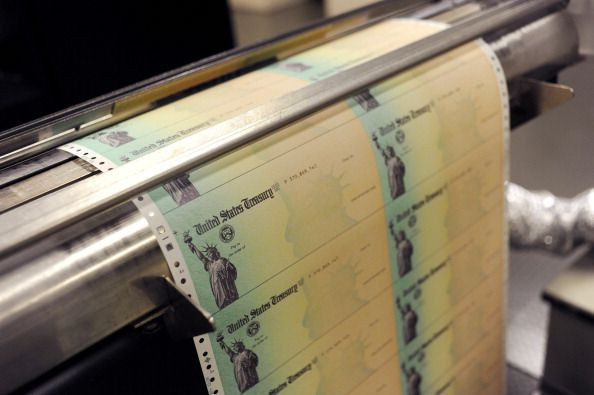Social Security: Know The Risks Of Claiming Benefits Too Early

Your Social Security benefits are calculated by taking your 35 highest-paid years of wages, adjusting them for inflation, and applying a special formula that dictates how much money you're entitled to per month in retirement. But the age at which you file for benefits will also determine how much monthly income you collect from Social Security as a senior.
You're entitled to your full monthly benefit based on your earnings history upon reaching full retirement age, or FRA. However, FRA isn't the same for all filers -- it's based on the year of birth, as per the following table:
Click here for the table.
That said, the Social Security Administration will allow you to file for benefits once you reach age 62. But for each month you file early, your benefits will be reduced on what's generally a permanent basis.
The greatest possible hit you can take on your benefits is 30%, which comes into play if you file at 62 if you have an FRA of 67. If you don't file quite as early, you won't lose quite as much in your benefits. But keep the following consequences in mind if you're contemplating taking benefits ahead of FRA.
1. You'll lose out on lifetime income if your health is great
The interesting thing about Social Security is that it's designed to pay you the same total amount in your lifetime regardless of the age at which you file. How can that be? Well, filing early reduces your monthly benefit, but you collect a larger number of monthly payments. Filing at FRA gives you your full monthly benefit without a reduction, but you collect fewer individual payments. It should even out if you live an average lifespan, but what if you don't?
If your health is poor and you expect to pass away sooner than the average senior, then filing early is actually a smart move. But if your health is great and you live longer than the typical senior, filing early could cause you to lose out on lifetime income that could otherwise come in handy.
Let's imagine you're entitled to a monthly benefit of $1,500 at an FRA of 67, which is just a touch more than what the average senior collects today. If you file for Social Security at 62, you'll reduce each monthly payment you'll get to $1,050. While you will collect more individual payments, if you wind up living until 90 (which the Social Security Administration expects will happen to 1 in 3 65-year-olds today), you'll lose out on $61,200 in lifetime income by taking benefits at 62.
Of course, filing at 62 with an FRA of 67 is somewhat of an extreme example, because filing at 65, for example, won't reduce your benefits nearly as much. The point, however, is that filing early will generally work against you if you wind up living a long life.
2. You'll risk struggling financially during retirement
If you're entering your golden years with a healthy level of savings, you may not need Social Security all that much once you retire. But if your savings are low to moderate, those benefits could wind up coming in handy. Reducing them, therefore, could mean having a harder time paying the bills once you're older.
Going back to our example, imagine that instead of collecting $1,500 a month in Social Security, you file five years early and cut your benefits down to $1,050. Missing out on $5,400 annually could make it much more difficult to keep up with your housing costs, pay for healthcare, and cover the numerous bills required to help you function, like heat, electricity, water, and food. As such, it pays to assess your savings if you're thinking of claiming Social Security ahead of FRA and see whether you'll be OK to reduce a major income stream.
3. You'll miss out on the opportunity to do the things you've always wanted to do
Reducing your Social Security benefits won't just impact your ability to pay the bills, it could also impact your outlook during retirement. The less income you have access to, the harder it will be to afford the things you've always dreamed of doing, like traveling. Therefore, even if you can manage to get by without a higher monthly payout from Social Security, think about the options a more robust benefit could buy you, and decide whether you're really willing to give them up.
To be clear, claiming Social Security early isn't always a bad idea. But before you file ahead of FRA, make sure you understand the different repercussions involved.
This article originally appeared in the Motley Fool. The Motley Fool has a disclosure policy





















